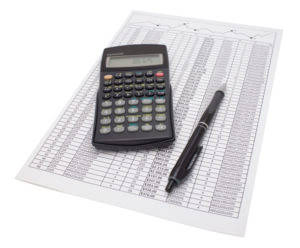
This equipment is not yet fully depreciate, the netbook value is $ 5,000 ($ 20,000 – $ 15,000) and company sell for $ 8,000. On 1 January 2006, Company B purchased equipment at a cost of $2 million. The company estimated its salvage value to be $0.2 million at the end of useful life of 5 years. As an example, let’s say our example asset is sold at the end of Year 3 and that we used Straight Line depreciation for this asset. Alternatively, if the sale amount is only $6,000, the company ABC Ltd. will make a loss of $375 (6,375– 6,000) on the sale of equipment.
- On 1 January 2006, Company B purchased equipment at a cost of $2 million.
- The fixed asset sale is one form of disposal that the company usually seek to use if possible.
- If a fixed asset is sold at a price lower than its carrying amount at the date of disposal, a loss is recognized equal to the excess of carrying amount over the sale proceeds.
The company makes a profit when it sells the fixed asset at the amount that is higher than its net book value. This type of profit is usually recorded as other revenues in the income statement. If the carrying amount of a fixed asset at the date of disposal is equal to the sale proceeds from disposal, there is neither gain nor loss. Any loss on disposal of a fixed asset is added back to net income in preparation of the cash flows from operating activities section of statement of cash flows under the indirect method. The accounting transaction results in removal of the trading terminal from balance sheet and recognition of the loss in income statement. Net effect on total assets is a decrease of $1.1 million (-$4,000,000 + $1,400,000 + $1,500,000) which is also reflected by equivalent decrease in shareholders’ equity.
Gain on Disposal of Fixed Assets
To remove this equipment, we need to make a journal entry of debiting accumulated depreciation and credit cost of equipment. When fixed assets are fully depreciated, it means the cost is equal to accumulated depreciation. After selling the fixed asset, https://www.online-accounting.net/here-s-how-capital-gains-taxes-on-investment/ company needs to remove both the cost and accumulate the assets. If a fixed asset is sold at a price lower than its carrying amount at the date of disposal, a loss is recognized equal to the excess of carrying amount over the sale proceeds.
The gain or loss is calculated as the net disposal proceeds, minus the asset’s carrying value. When an asset is sold or scrapped, a journal entry is made to remove the asset and its related accumulated depreciation from the book. The journal entry is debiting accumulated depreciation, cash/receivable, and credit fixed assets cost, gain, or loss.
Fixed assets are long-term assets that a business holds for more than one year and are used in the production of goods and services. The disposal of fixed assets refers to the process of selling or otherwise getting rid of these assets when they are no longer needed. Example of Entries When Selling a Plant AssetAssume that on January 31, a company sells one of its machines that is no longer used for $3,000. Also assume that the depreciation expense is $400 per month and the general ledger shows the machine’s cost was $50,000 and its accumulated depreciation at December 31 was $39,600.
When there is a gain on the sale of a fixed asset, debit cash for the amount received, debit all accumulated depreciation, credit the fixed asset, and credit the gain on sale of asset account. When there is a loss on the sale of a fixed asset, debit cash for the amount received, debit all accumulated depreciation, debit the loss on sale of asset account, and 5 1 the need for adjusting entries financial accounting credit the fixed asset. The options for accounting for the disposal of assets are noted below. The equipment is similar to other types of fixed assets which will decrease its value over time. We need to reverse the cost of equipment to depreciation expense based on the useful life. The depreciation expense needs to spread over the lifetime of the asset.
Time Value of Money
When a business disposes of fixed assets it must remove the original cost and the accumulated depreciation to the date of disposal from the accounting records. A disposal can occur when the asset is scrapped and written off, sold for a profit to give a gain on disposal, or sold for a loss to give a loss on disposal. If the sales price is greater than the asset’s book value, the company shows a gain. If the sales price is less than the asset’s book value, the company shows a loss.

The journal entry is debiting accumulated depreciation and credit cost of assets. To deal with the asset disposal we first need to calculate its net book value (NBV) in the accounting records. Accordingly the net book value formula calculates the NBV of the fixed assets as follows.
For example, on November 16, 2020, the company ABC Ltd. sells an equipment which is a fixed asset item that has an original cost of $45,000 on the balance sheet. After calculation, the accumulation depreciation of the equipment is $38,625 as at November 16, 2020. When a fixed asset is sold for an amount higher than its carrying amount at the date of disposal, the excess is recognized as gain on disposal. At any time, the company may decide to sell the fixed assets due to various reasons. The equipment broke down before the end of useful life, so we need to replace it with a new one. The company may require a new machine to increase the production capacity.
In this case, the disposal accounting is much more likely to result in a recognized loss, since the assumption is that the asset still had some of its useful life left when it was lost. When the company sold any particular equipment or fixed assets, it means company will no longer have control of that asset. In this case, the loss on sale of fixed asset amounting to $375 here will be classified as other expenses in the income statement of ABC Ltd. Alternatively, the company makes a loss when it sells the fixed asset at the amount that is lower than its net book value. This type of loss is usually recorded as other expenses in the income statement.
One fixed asset has an impact on two separate accounts which are cost and the accumulated depreciation. So when we sell the asset, we need to remove both costs and accumulated of the specific asset. The sale may generate gain or loss of deposal which will appear on the income statement. The fixed asset sale is one form of disposal that the company usually seek to use if possible.
How to Calculate Straight Line Depreciation
In the second part of the question the business sells the asset for 2,000. When an asset is sold for less than its Net Book Value, we have a loss on the sale of the asset. We are receiving less than the truck’s value is on our Balance Sheet. When an asset is sold for more than its Net Book Value, we have a gain on the sale of the asset. We are receiving more than the truck’s value is on our Balance Sheet. The netbook value of this equipment equal to $ 10,000 ($ 30,000 – $20,000) but it was sold for $ 6,000 only.
When the fixed assets are not yet fully depreciated, it still has some net book value on the balance sheet. The sale of this kind of fixed asset will generate gain or loss for the company. It is a gain when the selling price is greater than the netbook value. On the other hand, when the selling price is lower than the net book value, it is a loss. The equipment cost and the related accumulated depreciation are removed from balance sheet in the process of disposal and the gain is reported in income statement. The gain on disposal is a non-cash item which is subtracted from net income in the indirect method of preparation of cash flows from operating activities.
Find posts on Accounting Journal Entries & Financial Ratios
The company depreciated the asset on a straight-line basis i.e. $360,000 per year ((2,000,000 − 200,000) ÷ 5) resulting in the carrying amount as at 31 December 2010 of $0.2 million. Double Entry Bookkeeping is here to provide you with free online information to help you learn and understand bookkeeping and introductory accounting. Chartered accountant Michael Brown is the founder and CEO of Double Entry Bookkeeping. He has worked as an accountant and consultant for more than 25 years and has built financial models for all types of industries. He has been the CFO or controller of both small and medium sized companies and has run small businesses of his own. He has been a manager and an auditor with Deloitte, a big 4 accountancy firm, and holds a degree from Loughborough University.




